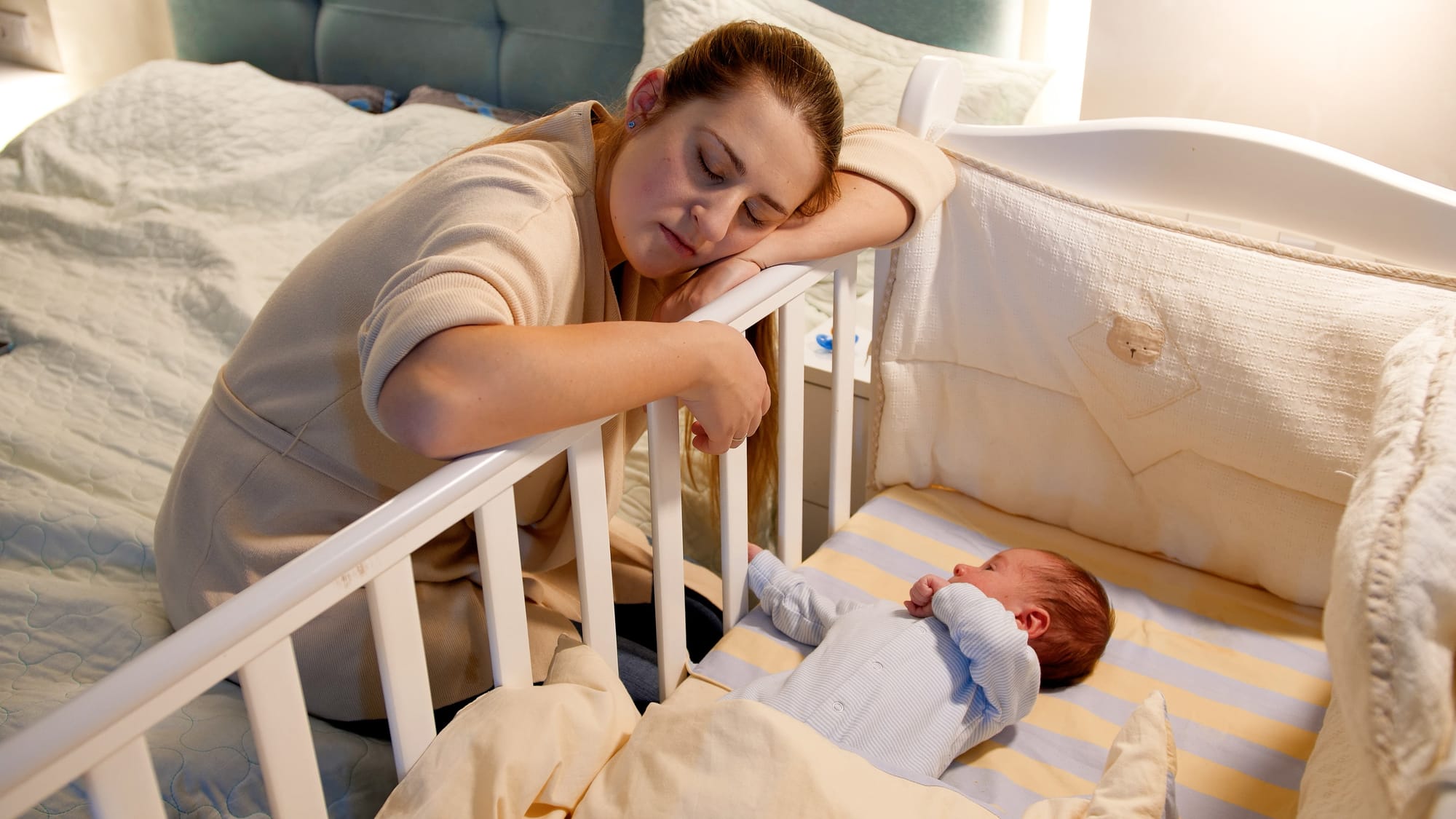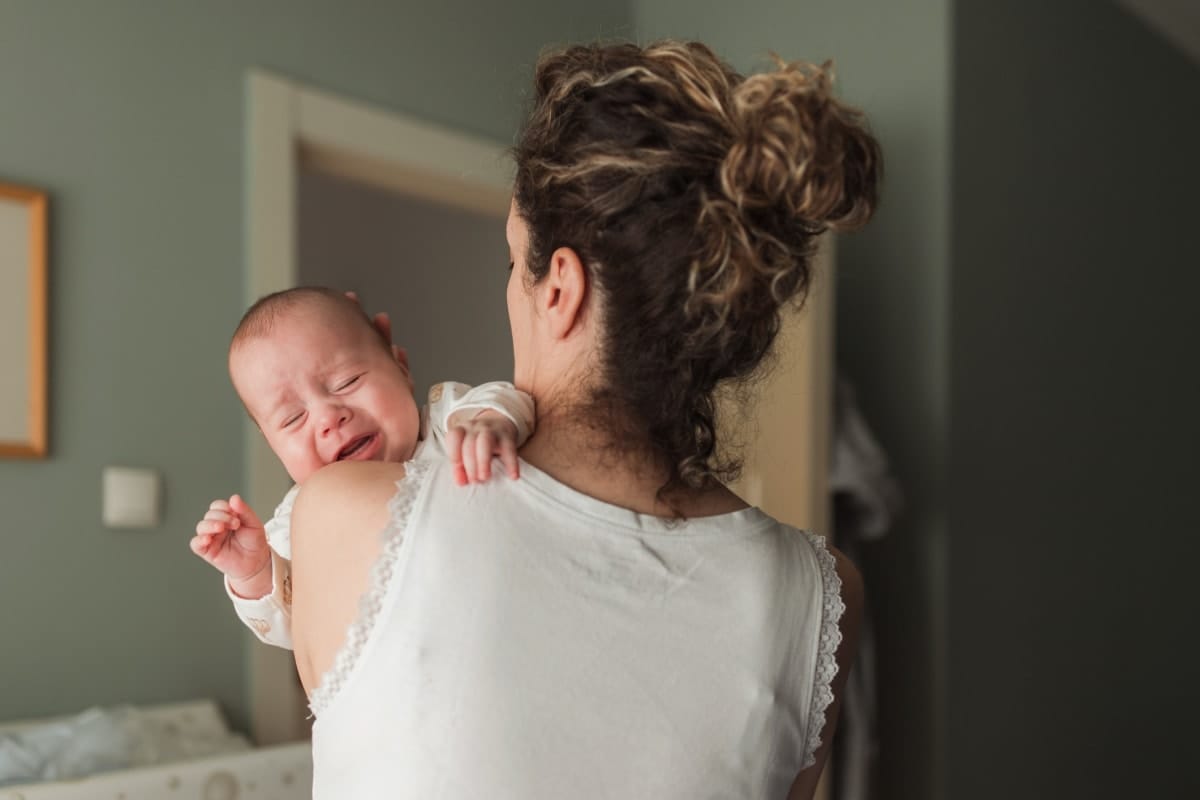
In Australia, about 900 families welcome a new baby each day. This generally follows a nine-month pregnancy demarcated by three, three-month trimesters, but about two decades ago, leading American paediatrician Dr Harvey Karp, in his book The Happiest Baby on the Block, argued that there was in fact a post-birth fourth trimester.
This fragile three-month period is characterised by the newborn baby adjusting to life outside the womb, but is also a time of intense adjustment, and vulnerability, for new parents; one that can be physically, emotionally and mentally draining, and that can sometimes last well past three months.

One of the most common problems new parents face is postpartum insomnia – getting enough sleep while their babies develop their circadian rhythms. Symptoms include difficulty falling asleep, struggling to stay asleep, and waking frequently during sleep.
Read more Artificial light, sleep and the battle to keep our circadian rhythms in tune
One study, conducted by researchers from the University of Warwick and the German Institute for Economic Research, found that sleep satisfaction and duration sharply declined in the first months postpartum, and didn’t recover to pre-pregnancy levels for up to six years.
The study found that birth mothers slept on average one hour less per night in the fourth trimester, and 40 minutes less on average over the first year, compared to before they were pregnant.
Some of the leading causes of postpartum insomnia, beyond having to get up regularly to feed the baby, include:
- hormone changes in the body, including a drop in the female sex hormone progesterone, and melatonin.
- anxiety and depression
- inadequate nutrition.
Sleep is an important biological function that helps with physical recovery, brain development, cardiac function, and the body’s metabolism.
But while there are many infant sleep programs and support available, support for new parents is lacking, according to Meagan Crowther, a psychology research fellow at Monash University’s Faculty of Medicine, Nursing and Health Sciences.
She’s overseeing a new Sleep Health in Perinatal Care (SHINE) study, an Australian government-funded trial aimed at better-understanding how sleep changes during pregnancy and early parenthood, and improving sleep during this important period.
The study will follow mothers, fathers, birthing and non-birthing parents from pregnancy until their baby's second birthday.
“We recognise that this is a real challenge for new parents, but our research has shown there are things we can do to support them during this time,” she said.
“We aim to make sleep support an integral part of perinatal care, and through our research we're also looking at how feasible and accessible this is within our current routine care settings."
She said Monash University researchers have spent the past five years developing and evaluating programs targeting perinatal sleep.
“Recently, we completed a clinical trial of 114 birthing parents between four to 12 months postpartum who had significant insomnia symptoms,” she said.
New #OpenAccess paper in Psych Med: 3-arm randomised controlled trial on Cognitive Behavioural Therapy (CBT) or Light Dark Therapy for #postpartum #insomnia. Shout out to study lead Dr Sumedha Verma & team @turnerinstitute @smwrajaratnam @WileyResearch 1/4https://t.co/2stXAYZe8e— Bei Bei (@BeiSci) 12 September, 2022
The trial compared a cognitive behavioural therapy-based sleep intervention, light dark therapy, and a control condition.
“We found that both cognitive behavioural therapy and light dark therapy significantly reduced symptoms of insomnia from before to after the programs, and the benefits were maintained at a one-month follow-up,” she said.
The lead researcher of the clinical trial, Dr Sumedha Verma, said: “Our study showed us that programs can be designed to help new parents sleep better, and that poor sleep doesn’t have to be something parents just have to put up with.”
The SHINE chief investigator, Monash Associate Professor Bei Bei, a clinical psychologist who was also a co-author of the most recent clinical trial, is now studying how non-drug based sleep interventions for perinatal sleep problems can be implemented in the wider community.
The Sleep Health in Perinatal Care (SHINE) study is inviting mothers, fathers and other non-birthing parents to help support sleep and health during and after pregnancy. If you, or your partner, are expecting a baby, please visit our website for more information or to sign up to the study: sleepshine.org





